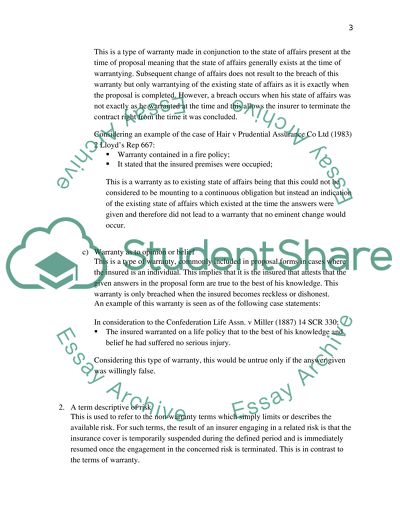Cite this document
(“INSURANCE LAW: By reference to case law, explain the following types Coursework”, n.d.)
INSURANCE LAW: By reference to case law, explain the following types Coursework. Retrieved from https://studentshare.org/law/1621804-insurance-law-by-reference-to-case-law-explain-the-following-types-of-term-which-may-be-found-in-an-insurance-contract-aa-warranty-and-ba-term-descriptive-of-risk-and-ca-condition-precedent-and-da-collateral-term
INSURANCE LAW: By reference to case law, explain the following types Coursework. Retrieved from https://studentshare.org/law/1621804-insurance-law-by-reference-to-case-law-explain-the-following-types-of-term-which-may-be-found-in-an-insurance-contract-aa-warranty-and-ba-term-descriptive-of-risk-and-ca-condition-precedent-and-da-collateral-term
(INSURANCE LAW: By Reference to Case Law, Explain the Following Types Coursework)
INSURANCE LAW: By Reference to Case Law, Explain the Following Types Coursework. https://studentshare.org/law/1621804-insurance-law-by-reference-to-case-law-explain-the-following-types-of-term-which-may-be-found-in-an-insurance-contract-aa-warranty-and-ba-term-descriptive-of-risk-and-ca-condition-precedent-and-da-collateral-term.
INSURANCE LAW: By Reference to Case Law, Explain the Following Types Coursework. https://studentshare.org/law/1621804-insurance-law-by-reference-to-case-law-explain-the-following-types-of-term-which-may-be-found-in-an-insurance-contract-aa-warranty-and-ba-term-descriptive-of-risk-and-ca-condition-precedent-and-da-collateral-term.
“INSURANCE LAW: By Reference to Case Law, Explain the Following Types Coursework”, n.d. https://studentshare.org/law/1621804-insurance-law-by-reference-to-case-law-explain-the-following-types-of-term-which-may-be-found-in-an-insurance-contract-aa-warranty-and-ba-term-descriptive-of-risk-and-ca-condition-precedent-and-da-collateral-term.


